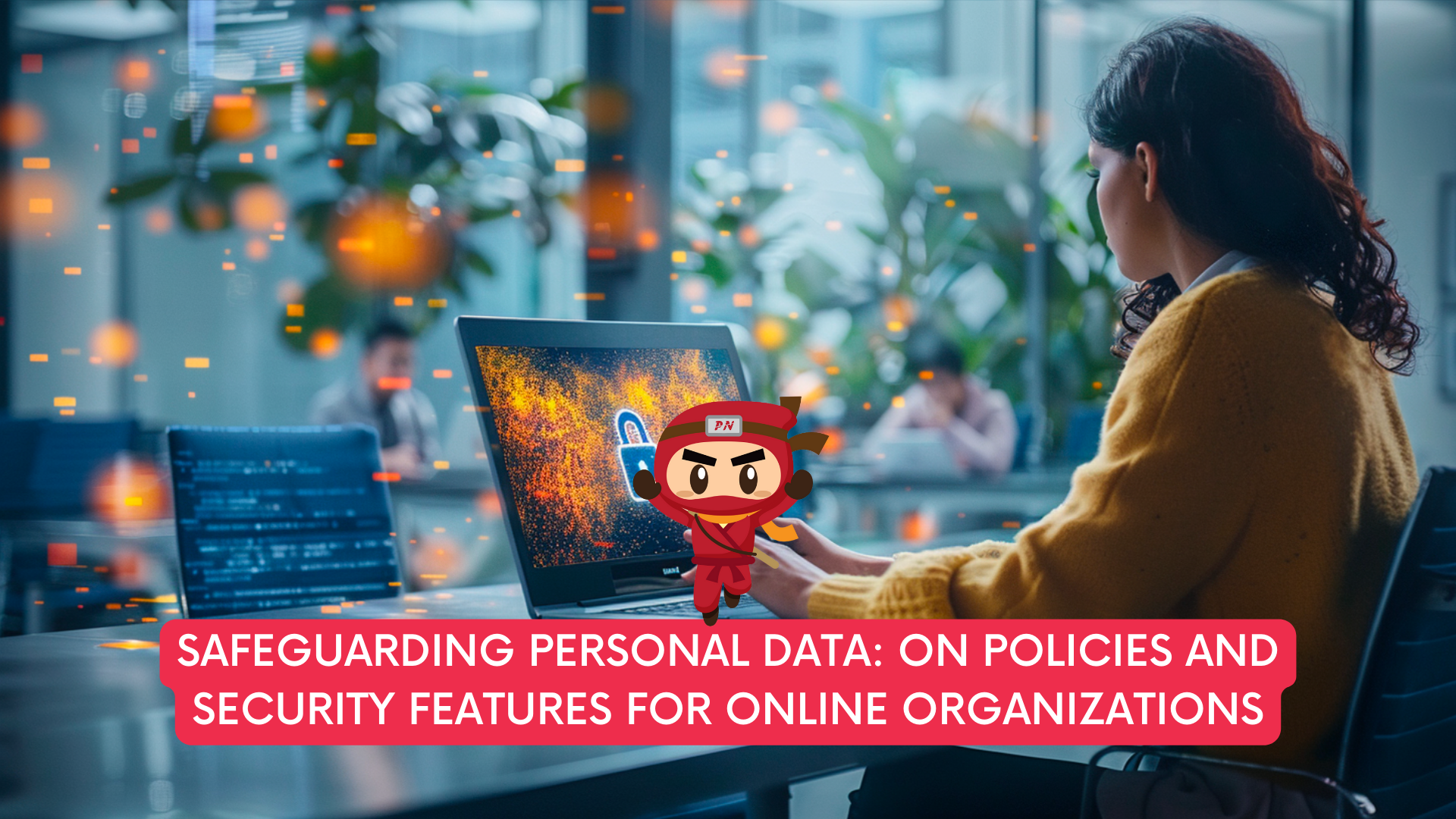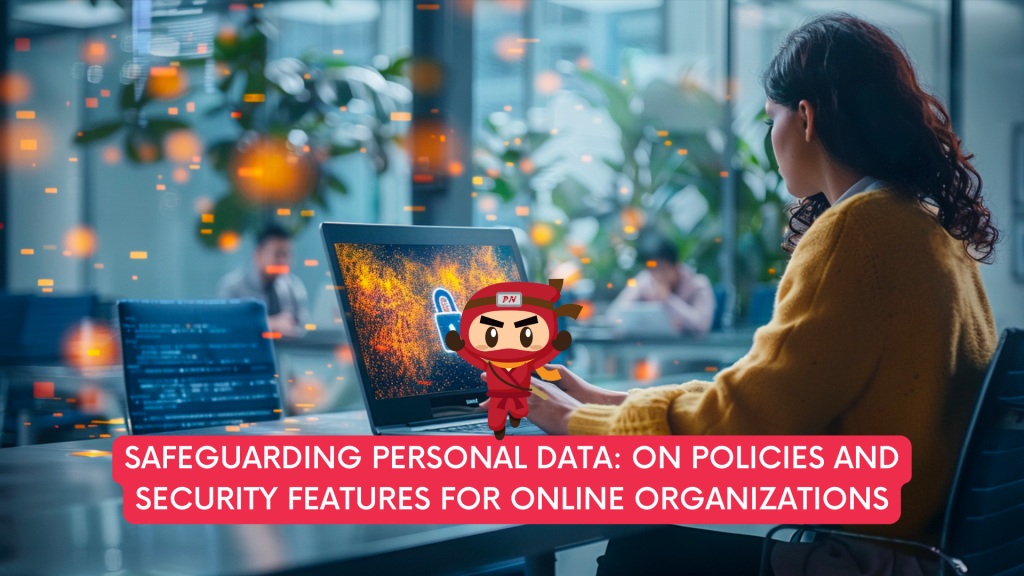KEEP IN TOUCH
Subscribe to our mailing list to get free tips on Data Protection and Cybersecurity updates weekly!







Organizations leveraging online tools or software face a critical responsibility: safeguarding the personal data of their users.
With cyber threats on the rise and regulatory bodies tightening their grip on data protection, ensuring robust privacy policies and security features has become paramount.
From small businesses to multinational corporations, the need to prioritize data security cannot be overstated.
Privacy policies serve as the cornerstone of data protection for online organizations. These documents outline how personal information is collected, used, and protected by the organization. Ensuring the clarity and comprehensiveness of these policies is not only an ethical obligation but also a legal requirement in many jurisdictions. Failure to provide transparent privacy policies can lead to mistrust among users and potential legal repercussions for the organization.
When crafting privacy policies, organizations must consider the specific nature of the data they collect and the purposes for which it is used. Whether it’s customer contact information, payment details, or browsing history, clarity regarding data usage is essential.
Moreover, organizations must stay abreast of evolving privacy regulations and update their policies accordingly. This proactive approach not only enhances user trust but also mitigates the risk of non-compliance penalties.

While privacy policies establish the framework for data protection, security features form the frontline defense against cyber threats. From encryption protocols to multi-factor authentication mechanisms, implementing robust security measures is imperative for safeguarding user data. Failure to secure online platforms can expose sensitive information to unauthorized access, leading to breaches and reputational damage.
Organizations must conduct comprehensive risk assessments to identify potential vulnerabilities in their online infrastructure. This includes assessing the security of third-party integrations and conducting regular penetration testing to identify and remediate weaknesses.
Additionally, investing in employee training programs to raise awareness about cybersecurity best practices can fortify the human element of data protection.
In the realm of data protection, compliance with regulatory standards is non-negotiable. Depending on the jurisdiction and industry, organizations may be subject to a myriad of regulations governing the handling of personal data. For instance, in Singapore, the Personal Data Protection Act (PDPA) sets out strict requirements for the collection, use, and disclosure of personal data.
Ensuring compliance with regulations such as the PDPA requires a multifaceted approach. Organizations must not only align their privacy policies and security measures with regulatory requirements but also establish internal processes for ongoing compliance monitoring and reporting.
This includes appointing data protection officers, conducting regular audits, and maintaining comprehensive records of data processing activities.
As the digital landscape continues to evolve, organizations must adapt their approach to data protection accordingly. Transitioning from reactive measures to proactive strategies is essential for staying ahead of emerging threats and regulatory changes. By prioritizing the implementation of robust privacy policies and security features, organizations can foster trust with their users while mitigating the risk of data breaches and regulatory penalties.

The imperative of privacy policies and security features for online organizations cannot be overstated. From fostering transparency and trust to mitigating cyber risks and ensuring regulatory compliance, prioritizing data protection is essential in today’s interconnected world. By embracing a holistic approach to safeguarding personal data, organizations can uphold their ethical obligations, protect their users, and safeguard their reputation in an increasingly digital landscape.
Your appointed DPO can work with you on your PDPA compliance, ensuring that there will be policies in place to make sure that the handling of personal data is PDPA compliant.
A Data Protection Officer (DPO) oversees data protection responsibilities and ensures that organisations comply with the Personal Data Protection Act (PDPA). Furthermore, every Organisation’s DPO should be able to curb any instances of PDPA noncompliance as it is the officer responsible for maintaining the positive posture of an organisation’s cybersecurity.
DPOs complement organisations’ efforts to ensure that the organisation’s methods of collecting personal data comply with the PDPA. It also ensures that policies are set in place to make sure that there will be no instances of data breaches in the future.
Don’t wait any longer to ensure your organisation is PDPA compliant. Take our free 3-minute PDPA Compliance Self-audit checklist now, the same “secret weapon” used by our clients to keep them on track. Upon completion, we will send you the results so you can take the necessary action to protect your customers’ data. Complete the free assessment checklist today and take the first step towards protecting your customers’ personal data.